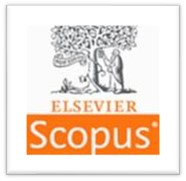Document Type
Article
Abstract
Adolescence is the transition period from childhood to adulthood. Since Bangladesh is such a conservative society, reproductive health education for adolescents has not been widely introduced. Very small adolescent health components are included in the secondary and higher secondary school curricula. The BRAC Mentoring Program provides mentorship training to secondary school pupils to develop them as peer leaders. However, this program does not provide adolescent reproductive health education. Therefore, a study, supported by BRAC Education Program in rural Bangladesh, was conducted to explore the current status of reproductive health knowledge, perceptions and practice among the students of secondary schools. This study was conducted in November 2012 among the students of three secondary schools supported by BRAC Education Program in two sub-districts of Mymensingh district, Bangladesh. The qualitative study explored students’ reproductive health knowledge, perceptions, and behavior. Twenty four In-Depth Interviews and four Focus Group Discussions were conducted with students and four Key Informant Interviews were also conducted with teachers. The findings indicated that there is a lack of knowledge on reproductive health among the adolescent girls and boys of rural secondary schools. The students did not know about physical changes in puberty before the onset of such changes and mostly learnt about them from their own bodily experience. Mothers were the main source of information on menstruation for girls, and in case of boys, friends were the main source of information on wet dreams. All girls had comparatively good menstrual hygiene knowledge and practices. On the other hand, boys had very poor knowledge about wet dreams. Both girls and boys had poor knowledge about sexually transmitted diseases. However, they had better knowledge and perceptions about AIDS, in comparison with other issues of adolescent reproductive health. Though teachers and students felt uncomfortable with the teaching of reproductive health issues in class, but, interestingly, books were found to be the most reliable source of information for the students. Most of the students and teachers felt that the available information was inadequate for the adolescents. The study findings also showed that adolescent boys and girls had limited knowledge about reproductive health. Therefore, it is recommended that BRAC Education Program needs to provide adolescent reproductive health education in the school through peer education approach and provide special training to the teachers on teaching reproductive health education in class as well.
Recommended Citation
Aktar, B, Sarker, M, & Jenkins, A. Exploring adolescent reproductive health knowledge, perceptions, and behavior, among students of non-government secondary schools supported by BRAC mentoring program in rural Bangladesh. Journal of Asian Midwives. 2014;1(1):17–33.



